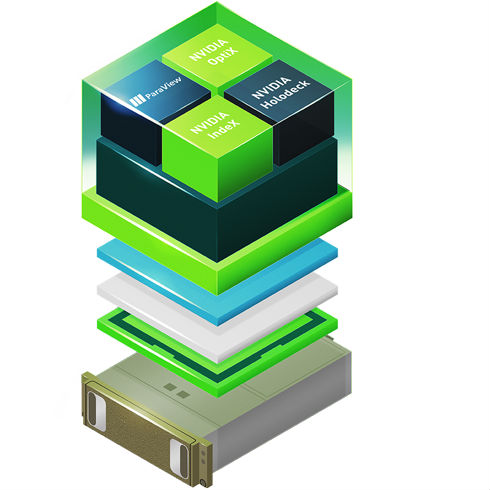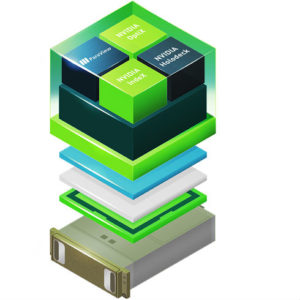In this guest post, MichaelS writes that visualization containers are easing the migration of HPC workloads to the Cloud.
Visualizing the results of a simulation can give new insight into complex scientific problems. Interactive viewing of entire datasets can lead to earlier understanding of the challenge at hand and can enhance the understanding of complex phenomena. With the release of the of HPC Visualization Containers with the NVIDIA CPU Cloud, it has become much easier to get a visualization system up and production ready much quicker than ever before.
Installing graphics drivers and the connecting to visualization software in a remote datacenter can be cumbersome and prone to many mistakes. Getting the entire system up and productive leads to faster results interpretation and reduces the time needed to understand the simulation. By using the HPC Visualization Containers, the entire effort is reduced to minutes and data scientists can interact with massive volumes of data sooner.
An example of the HPC Visualization Container, an optimized Paraview software package is included which runs on NVIDIA GPUs. This allows the user to quickly take advantage of the underlying NVIDIA software libraries such as NVIIDA Optix and NVIDIA IneX. Using the container approach, everything needed is included in a simple download.
Containers simplify the distribution and thus the implementation of state-of-the-art visualization environments. Users can easily pull the visualization containers from the NVIDIA GPU Cloud and easily install on a system of their choosing. For those engineers and data scientists that require the latest visualization technologies, they can do the entire installation themselves.
Containers eliminate the need to install applications on a system, giving users more freedom to run their visualization jobs on different systems. Users can now pull the HPC visualization containers from NGC and run ParaView, NVIDIA IndeX, NVIDIA Optix, and NVIDIA Holodeck on Pascal and Volta GPU-powered workstations, HPC clusters, NVIDIA DGX Systems, and in the cloud. This means that the users no longer have to rely on the system administrators to install the visualization tools.
One of the challenges with remote visualization is determining how much data to send over the network connection. With the increasingly popularity of remote visualization, reducing the amount of data sent over the network is of even more importance. The HPC Visualization Containers from NVIDIA reduce the amount of bandwidth needed and improves the interactivity with very large data sets.
Learn more about and get access to HPC Visualization Containers with the NVIDIA GPU Cloud.





